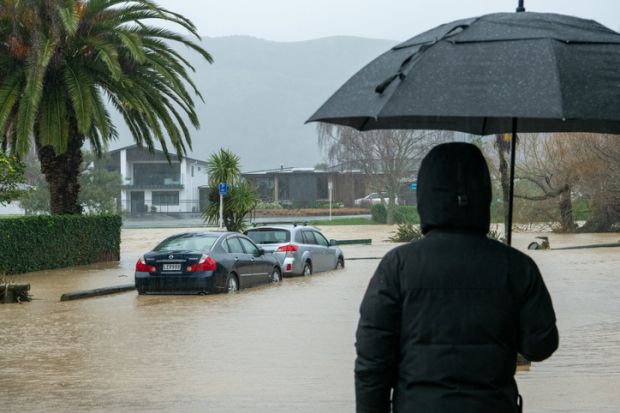New Zealand’s academic union is sceptical that this week’s budget will deliver funding relief for tertiary institutions, despite prime minister Chris Hipkins’ pledge to prioritise skills and science.
Mr Hipkins, who was elevated from the education portfolio in January, told a pre-budget gathering that skills, science and infrastructure would receive extra support in the budget that will be revealed on 18 May. “As a former education minister it will be no surprise that skills is top of that list for me,” he said.
“Education is the single biggest way that people can change their lives and outcomes. If we’ve got the investment in science, strong and resilient infrastructure – and a skilled workforce to carry all this out – then that supports every area of the economy.”
However, Mr Hipkins also promised a “no-frills” budget, saying his government’s previous habit of “doing too much too fast” had diverted resources from needy areas. “Living within our means is an important economic goal for me, professionally and personally. It’s not right for households to be tightening their belts if the government doesn’t too.”
The Tertiary Education Union said these comments boded ill for the sector. “What we’ve seen over the past five years is largely a continuation of successive previous governments’ focus on austerity,” said national secretary Sandra Grey. “Investment has continued to lag behind inflation, the ‘bums-on-seats’ funding model remains and, as a result, institutions have continued to cut staff whenever enrolment numbers dip.”
Lucy Stewart, co-president of the New Zealand Association of Scientists, said the university sector was “at a crossroads”, with its financial model “clearly not working”.
“We’ve seen major cuts to staff numbers at Waikato, Massey and AUT [Auckland University of Technology] in the last three years. We can’t afford to gut our science capability and reputation [but] if we continue down the current path of university funding and operation this seems inevitable.”
While New Zealand’s eight public universities all ended 2021 in surplus, recent financial accounts tell a different story. Annual reports have been released so far by five institutions, with four registering deficits. A combined NZ$168 million (£84 million), or 5 per cent, has been stripped from the five universities’ earnings.
Expenses mounted at all five, rising by a combined NZ$159 million, largely because of surging personnel costs, which grew by NZ$65 million.
Auckland and Massey universities each incurred NZ$20 million-plus increases in operating expenses such as consumables, maintenance, computing, contracted services, travel and scholarship provision. The University of Otago blamed the “challenging financial market conditions” for some NZ$48 million of investment losses, mostly in its foundation trust.
In April, Otago’s acting vice-chancellor, Helen Nicholson, flagged hundreds of redundancies, saying her institution needed to trim about NZ$60 million from its annual operating budget.
Professor Nicholson said Otago had suffered “years of below-inflation funding rate increases”. She said the government was unlikely to rectify the problem in this year’s budget after February’s disastrous cyclone and floods.
In a February brief to incoming education minister Jan Tinetti, Universities New Zealand said 57 per cent of its members’ spending was on personnel expenses. It said staff “pay expectations” lay at the level of inflation, currently almost 7 per cent, but the government had limited tuition fee increases to 2.75 per cent. “We…need financial support in budget 2023 to ensure our universities can continue to retain people,” the brief said.

